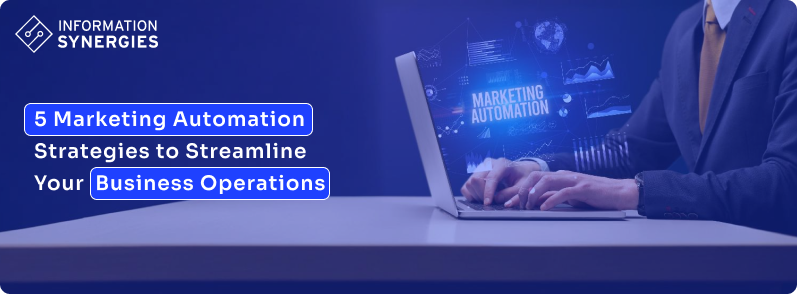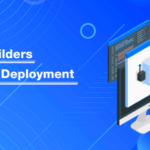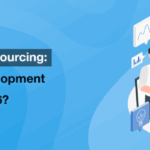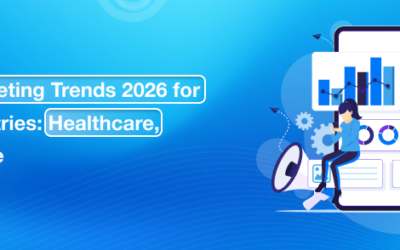
In today’s fast-paced digital landscape, businesses must adopt strategies that save time while driving meaningful results. Marketing automation has become a game-changer, enabling companies to streamline repetitive tasks, nurture leads effectively, and scale operations without increasing overhead.
In this blog, we’ll explore why marketing automation is essential, what you can automate, and the top 5 strategies you can implement today to optimize your marketing operations.
Why Use Marketing Automation?
Marketing automation is about leveraging technology to simplify and automate time-consuming marketing activities. It enables businesses to:
- Save time on repetitive tasks like email scheduling and customer follow-ups.
- Improve lead nurturing with personalized campaigns.
- Enhance customer experiences through timely interactions.
- Boost ROI by optimizing campaign performance with data-driven insights.
By automating tasks, teams can focus more on strategy and creativity, ensuring higher efficiency and better results.
What Can You Automate with Marketing Automation?
The possibilities for automation are endless, but some common areas include:
- Email Marketing: Automate welcome emails, newsletters, and abandoned cart reminders.
- Social Media Management: Schedule posts and track engagement.
- Lead Scoring: Prioritize high-potential leads with automated scoring systems.
- Customer Segmentation: Create targeted campaigns for specific audience groups.
- Performance Tracking: Monitor KPIs and generate real-time reports.
Top 5 Marketing Automation Strategies to Streamline Operations
1. Creating Ideal Customer Profiles (ICPs) to Set Up Audience Targeting
Understanding your target audience is crucial for effective marketing. Use automation tools to collect and analyze customer data to create detailed ICPs. This helps in defining audience segments for hyper-personalized campaigns, ensuring your message reaches the right people.
2. Establishing Drip Email Campaigns
Drip email campaigns nurture leads over time through a series of pre-scheduled emails. Automation ensures timely delivery, customized content, and engagement tracking, helping to build trust and convert prospects into customers.
3. Scheduling Social Media Posts
Consistency is key in social media marketing. Use tools like Hootsuite or Buffer to schedule posts, track engagement, and analyze performance. This saves time while ensuring your brand stays active across platforms.
4. Segmenting Contacts into Subgroups
Divide your audience into subgroups based on behavior, interests, or demographics. Automated segmentation allows for highly personalized campaigns that resonate better with each group, driving higher engagement and conversions.
5. Adding Chatbots to Help with Customer Service
Chatbots provide instant responses to customer queries, improving user experiences and reducing the workload for customer service teams. They can answer FAQs, assist in lead generation, and even upsell products.
Other Marketing Automation Strategies to Consider
1. Delivering Personalized Content
Automate the delivery of tailored content based on customer preferences or browsing history. Personalized experiences foster stronger relationships and encourage repeat business.
2. Automating Loyalty Programs
Rewarding customer loyalty doesn’t have to be manual. Automate points allocation, redemption reminders, and exclusive offers to keep customers engaged and coming back.
3. Sending Abandoned Cart Reminders
E-commerce businesses can recover lost sales by automatically sending reminders to customers who left items in their carts. These emails can include discounts or free shipping offers to incentivize purchases.
4. Running A/B Tests to Improve Performance
Use automation tools to set up A/B tests for emails, landing pages, or ads. Analyze the results to identify what resonates best with your audience and optimize future campaigns accordingly.
5. Measuring Campaign Performance
Track campaign performance metrics like click-through rates, conversions, and ROI automatically. This helps you understand what’s working and where to improve.
6. Tracking and Analyzing Competitors
Automated tools like SEMrush or Ahrefs allow you to monitor competitor activities, including keyword rankings and content performance, helping you stay ahead in your industry.
How a Leading Digital Marketing Agency Can Help
Partnering with a digital marketing agency can take your automation efforts to the next level. Here’s how:
- Customized Strategy Development: Agencies craft tailored automation strategies based on your business goals.
- Tool Selection and Integration: They help you choose and integrate the right tools for your needs.
- Performance Monitoring: Agencies continuously analyze and optimize your campaigns to ensure maximum ROI.
- Expert Support: With dedicated experts, you can address challenges and leverage the latest automation trends.
A digital marketing agency ensures that your automation efforts are efficient, effective, and aligned with your overall marketing strategy.
Conclusion
Marketing automation isn’t just a convenience—it’s a necessity for businesses looking to scale efficiently in today’s competitive environment. By implementing strategies like ICP creation, drip campaigns, and chatbot integration, you can streamline operations and focus on what matters most: growing your business.
Investing in the right tools and expertise can transform how your business engages with customers and achieves results.







